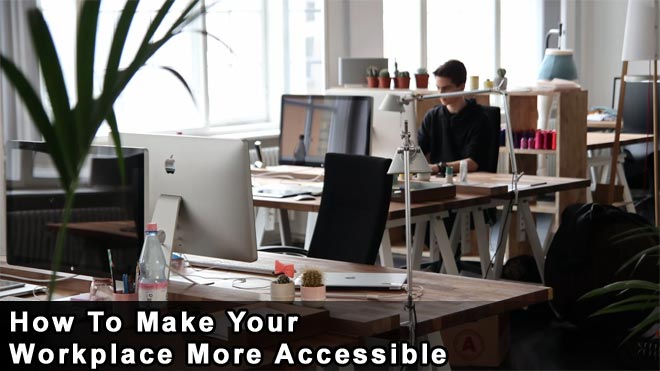How To Make Your Workplace More Accessible
Accessibility should never be an afterthought; it should always be a priority. There are innumerable benefits to enhancing your workplace’s accessibility, both to your employees and to your business as a whole. Essentially, workplace accessibility is not only a legal requirement but is the most successful way of a productive, functional, and welcoming working environment.
Accessibility goes hand in hand with inclusivity, and as a business, you are not only legally responsible but morally accountable to ensure your workplace is a positive place to be. Accessibility is by no means confined to physical implications; neurological and mental matters require just as much consideration, and this is how you can achieve it in your workplace.
Building Accessibility
To ensure your workplace is accessible to all, physical changes and alterations need to be made. All vertical transportation systems within the building should be installed, maintained, and routinely inspected.
Elevators, escalators, and all other conveyances, as well as automatic doors, are crucial in enabling employees with physical disabilities to travel freely throughout the building. It is important to routinely inspect all conveyances within the workplace; companies such as ATIS elevators can manage all your conveyance inspection needs for you.
Read Also:
Updating older buildings and removing architectural barriers is strongly advisable.
Public and private bathrooms need to be equipped with handrails, and you should fit adjustable tables and desks to allow flexibility. After all, one size indubitably does not fit all.
Supplying and displaying wayfinding signs throughout your building, such as braille print as a standard on all signage, are also worthwhile, and all emergency exits need to be clearly labeled and continuously visible.
Digital Accessibility
Technology has developed the working environment into much more of a routinely accessible and, therefore, naturally more inclusive place to be. In a world where digital means are king, screens and digital displays are incredibly useful to convey your business’s information to all employees.
Personalized email addresses that are accessible from work and home help to spread the information to everyone. All presentations should have audio descriptions and closed captioning options, and the language used needs to be user-friendly and simplified where possible.
All policies you put in place should always promote an inclusive culture. Treating your employees with the respect they deserve as individuals will pay dividends to your business as a whole.
See Also: 200+ Best Creative Team Names for Workplace
Flexible Working
There are numerous ways to adapt your workplace and business model to suit a much more flexible way of working. A flexible approach is beneficial to both your employees and your business; when your employees are happy, their work ethic is amplified, which leads to increased efficiency as a whole. Offering the option to work from home, where applicable, introduces more staff flexibility, a better work/life balance for your employees, and productivity gain.
Making your workplace as accessible as possible benefits not only you but your business as a whole. For more information on workplace inclusivity, resources such as an inclusive workplace checklist will help you to make active changes to your workplace accessibility program and inclusivity ethos. After all, empowering your employees will unquestionably empower your business.








